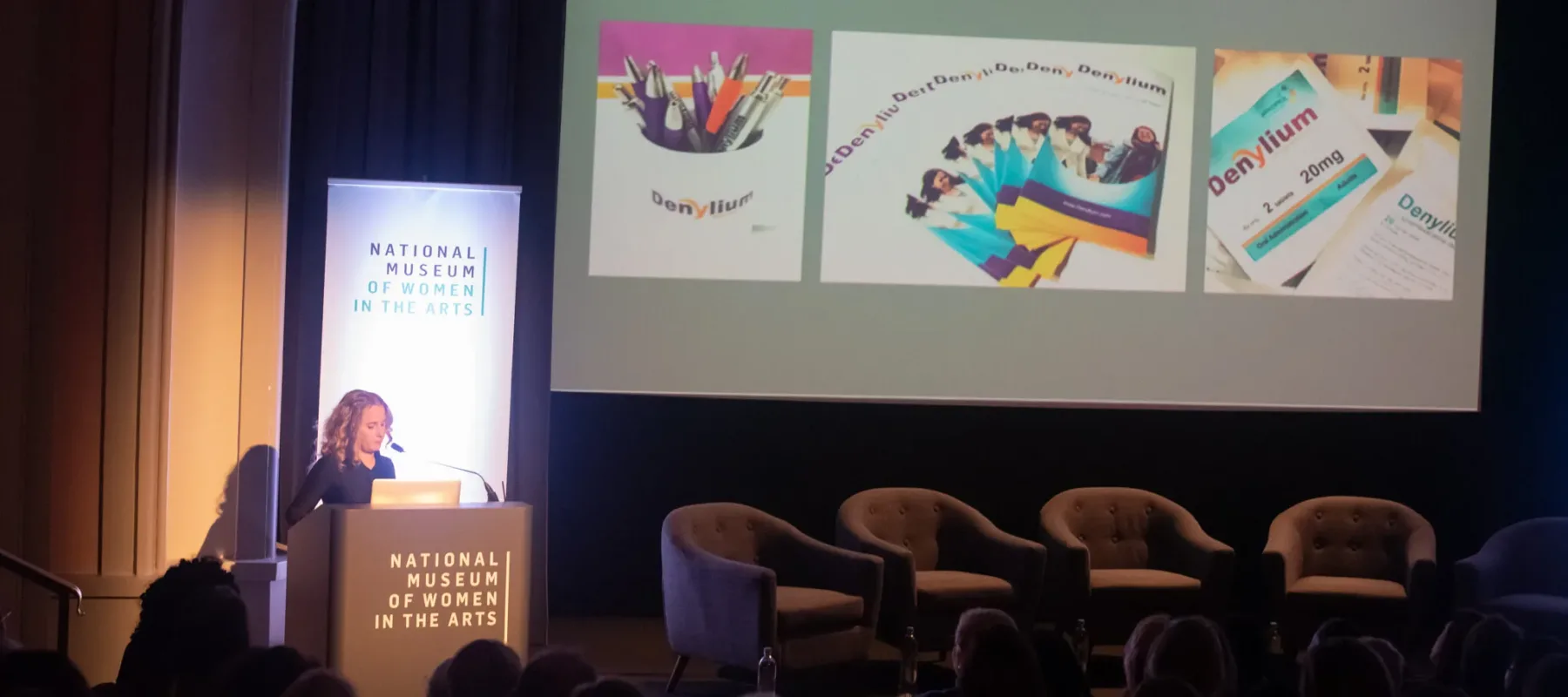On November 17, 2019, NMWA’s Women, Arts, and Social Change initiative gathered artists and activists, including Adjoa Asamoah, Jackie Payne, Kim Loper, and Alexandra Bell, for Fresh Talk: Art, Power, and the Vote—100 Years After Suffrage. The speakers explored the history and legacy of women’s suffrage and the ways that artists and activists can collaborate in the fight for social change.
As the 2020 Presidential Election nears, we revisit the powerful talks and wisdom shared by these women. This week, listen to Kim Loper, a designer, artist, and educator, critically examine the visual messaging of 19th-century suffrage propaganda, which centered and elevated white women in the style of heroic realism.
“I am interested in the cultural psychological belief systems that were at work during that time, that white women inherit today: we are superior and we don’t need to concern ourselves with anyone else’s struggles,” Loper said.
“If white women care about change like we say we do, we must align ourselves with antiracist political action led by Black, Brown, and working-class people in a way that de-centers ourselves. That most likely means holding up a mirror to ourselves first.”
—Kim Loper
Loper’s recent work explores the manifestations of white women’s racism in a multimedia project called Miraciprol, a parody pharmaceutical company that treats the symptoms of racism in white people with a drug called Denylium. Through the project’s website and social media, a short film, and interactive performances, Loper engages white people in dialogue, co-learning, and self-reflection around internalized white supremacy. Loper acknowledges that this project is not a form of activism in and of itself. She is thinking critically about how to harness it as a tool for race-conscious organizing in white communities.
“If white women care about change like we say we do, we must align ourselves with antiracist political action led by Black and Brown and working-class people in a way that de-centers ourselves. And that most likely means holding up a mirror to ourselves first.”
Listen to Loper’s presentation and the full conversation:
Fresh Take Bonus Clip:
Learn about what is at the heart of Loper’s work and how she hopes to grow systemic change.
